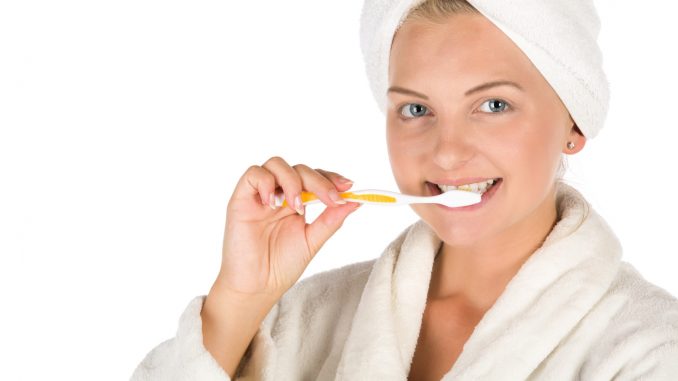
When looking at someone, their smile is perhaps the very first thing you notice. Having a good oral health and healthy teeth is mandatory nowadays. Of course, everyone wants to have white and shiny teeth like the ones in commercials, but not many people realize that this requires a permanent proper dental care.
Even though dentistry technology has evolved a lot, you should know that you can maintain a good care for your oral health by only following a few very important steps. Let’s find out together what you need to do in order to make sure you will have healthy teeth for as long as possible!
- Routine visits to the dentist are mandatory
A lot of people, unfortunately, end up going to the dentist way too late, when the issues are already very evolved and there’s not much they can do to keep their teeth natural. This happens due to the false impression that you only need to visit your dentist when something hurts of you have an aesthetic problem.
It may surprise you to find out that you can prevent any dental issues if you visit your doctor for a regular check up every 6 months. It’s better to leave your dentist’s office happy because you don’t have any affections, rather than wondering where to get more money from for the extremely complex and expensive repair methods you would need if you postpone it for too long.
- Do a proper research on how to take care of your teeth
Don’t be harsh on your teeth. Don’t remove your teeth or get fillings straight away for any small dental cavity; it is recommended to try alternative methods with your dentist first, and only then go to more drastic treatments, if you’re not happy with the results.
For example, did you know that small cavities can be treated with fluoride? This is a mineral which can reverse the tooth decay process, and it can successfully stop it from progressing. It can reconstruct your tooth enamel, repairing your teeth without having to get fillings.
- Learn how to properly brush your teeth
The vast majority of dental problems are caused by improper brushing, which is a much more frequent problem than one might think. Proper brushing must be done with a soft brush, in gentle, circular motions. Failing to get this right will leave many bacteria on your teeth, which can result in accumulation of tartar, possibly leading to periodontitis. This is a very dangerous affection, that, when left untreated, can cause loss of the teeth in just a few years.
Dentists recommend using an electric toothbrush, which are very easy to use and practical. It can practically take care of your teeth by itself, you simply need to guide it. Some of them will even notify you when to finish brushing. We must brush our teeth for approximately 2-3 minutes, 3 times a day. If time doesn’t allow you to do that, at least 2 times should do it – once in the morning, and once at night, before going to sleep.
- Use dental floss daily
I cannot stress this enough. Dental floss can reach spots that you otherwise wouldn’t be able to with your toothbrush. It helps remove debris between your teeth and removes plague. Frequent floss can prevent many diseases, and it will save you a lot of time and money on your future visits to the dentist.
- Use mouthwash in addition to flossing
Some people are arguing that if you’re flossing your teeth, you don’t need to use mouthwash, and vice versa. This is not true, however. They both have different beneficial effects, and are known to be complementary. Mouthwash is a great way to quickly get a fresher breath. Apart from that, it eliminates bacteria and tartar. Some of them even contain various substances that can whiten your teeth.
It is extremely important to have a good oral hygiene from the very early ages. It will save you a lot of time, money and nerves later on in life. If you follow these pieces of advice vigorously there’s literally no reason you won’t be able to have shiny, healthy teeth, even when you’re older.



Leave a Reply